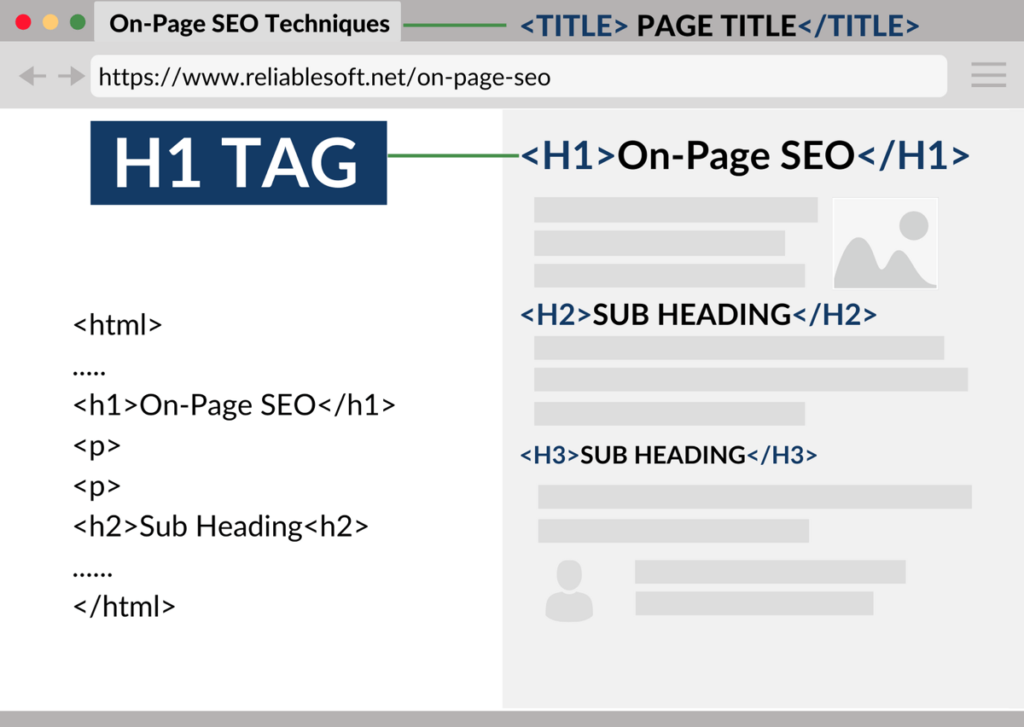
In the ever-evolving world of digital marketing, staying ahead of the curve is essential to success. When it comes to Search Engine Optimization (SEO), mastering on-page techniques can significantly impact your website's visibility and rankings on search engine results pages (SERPs). In this guide, we'll unveil 10 proven on-page SEO techniques that will help you skyrocket your rankings and dominate the search landscape.

Craft compelling and descriptive titles that include relevant keywords to attract both search engines and users. Keep titles concise (under 60 characters) and ensure they accurately represent the content of your page.

Write unique meta descriptions for each page, summarizing its content in a concise and enticing manner. Include relevant keywords naturally and aim for a length of around 150-160 characters to ensure visibility in search results.

Organize your content with clear and hierarchical header tags to improve readability and signal the importance of different sections to search engines. Use H1 tags for main headings and H2, H3, etc., for subheadings.

Craft SEO-friendly URLs that are descriptive, concise, and include relevant keywords. Avoid long, complex URLs with unnecessary parameters or symbols, and use hyphens to separate words for readability.

Strategically place your target keywords in key on-page elements such as the page title, meta description, headers, and throughout the body content. However, ensure keywords are used naturally and avoid keyword stuffing, which can harm your rankings.

Create high-quality, informative, and engaging content that addresses the needs and interests of your target audience. Aim for comprehensive coverage of topics, incorporate multimedia elements where appropriate, and ensure content is well-structured and easy to read.

Include descriptive alt text for images on your website to improve accessibility and provide context to search engines. Use relevant keywords naturally in alt text to enhance image SEO and increase the likelihood of appearing in image search results.

Optimize your website's loading speed for a better user experience and improved search rankings. Minimize image sizes, leverage browser caching, reduce server response times, and eliminate unnecessary scripts or plugins to boost performance.

With the increasing prevalence of mobile devices, ensure your website is mobile-friendly and responsive across various screen sizes and devices. Google prioritizes mobile-friendly websites in its search results, making mobile optimization crucial for SEO success.

Use schema markup to provide search engines with additional context about your content and enhance its visibility in search results. Implement structured data markup for key information such as product details, reviews, events, and more to stand out in SERPs.
By implementing these 10 proven on-page SEO techniques, you can optimize your website for search engines, improve your rankings, and drive organic traffic to your site. Remember that SEO is an ongoing process, so continuously monitor and refine your on-page optimization efforts to stay ahead of the competition and achieve long-term success.

